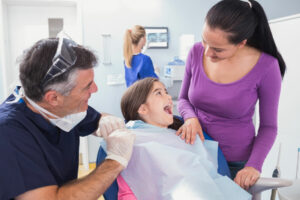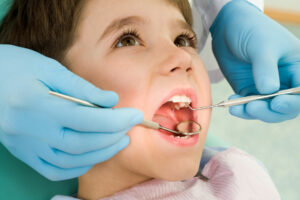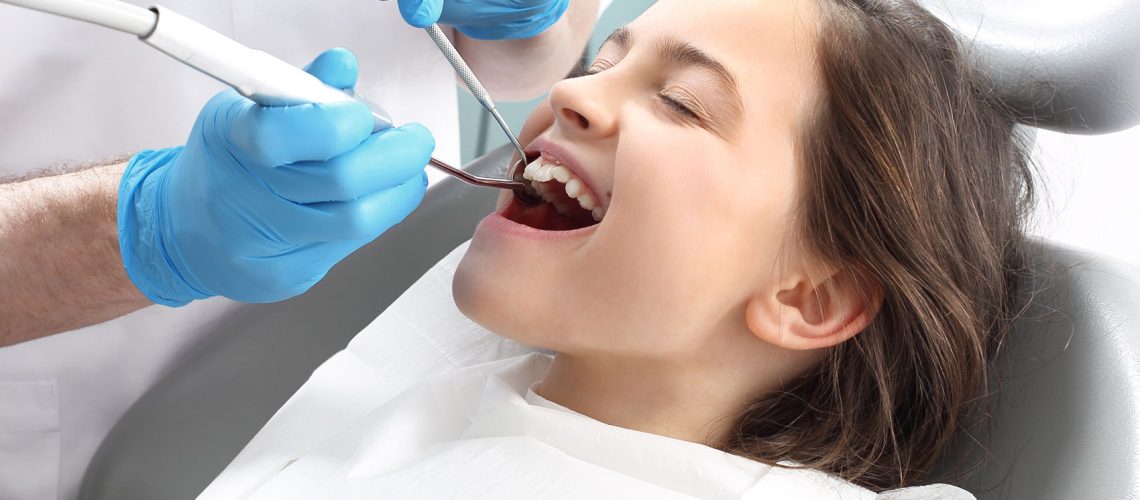Good dental health plays a vital role in children’s overall well-being. From proper nutrition to speech development, healthy teeth and gums are crucial for a child’s growth and development. Biological dentistry—or “holistic dentistry”—offers a holistic and safe approach to dental care for children, focusing on prevention, minimally invasive treatments, and the use of biocompatible materials. By embracing biological dentistry principles, parents can promote optimal oral health in their children from an early age, setting the foundation for a lifetime of healthy teeth.
Understanding Biological Dentistry for Children

Biological dentistry, also known as holistic or integrative dentistry, recognizes the intimate connection between oral health and the body’s overall well-being. It goes beyond traditional dentistry, acknowledging the impact of oral health on systemic health (and vice-verse). The key principles of biological dentistry include prevention, the use of minimally invasive treatments, and the avoidance of harmful substances such as mercury.
Promoting Oral Health Habits in Children
- Daily Oral Hygiene Routine: Instilling good oral hygiene habits in children is essential. Teach them proper brushing techniques using a soft-bristled toothbrush and fluoride-free toothpaste. Demonstrate how to reach all tooth surfaces and encourage them to brush for at least two minutes, twice a day. It’s also important to emphasize the importance of daily flossing to remove plaque and food particles from between the teeth.
- Nutritional Guidelines for Oral Health: A well-balanced diet is crucial for maintaining healthy teeth and gums. Encourage children to consume a variety of fruits, vegetables, whole grains, and lean proteins. Limit their intake of sugary snacks, carbonated beverages, and sticky candies that can contribute to tooth decay. Drinking plenty of water throughout the day helps rinse the mouth and maintain hydration.
- Importance of Regular Dental Check-ups: Schedule routine dental visits for your child from an early age, starting as soon as their first tooth erupts or by their first birthday. Regular check-ups allow a holistic dentist to monitor oral development, detect any potential issues early on, and provide preventive care. These visits also provide an opportunity for oral health education tailored to your child’s specific needs. Building a positive and trusting relationship with the dentist helps reduce dental anxiety in children.
Minimally Invasive Treatment Options
 Fluoride-Free Alternatives: Consider using fluoride-free toothpaste and rinses as an alternative to traditional fluoridated products. While fluoride has benefits for tooth enamel, excessive exposure can have potential health concerns. Look for natural and non-toxic products that incorporate remineralizing agents such as hydroxyapatite to support tooth enamel health.
Fluoride-Free Alternatives: Consider using fluoride-free toothpaste and rinses as an alternative to traditional fluoridated products. While fluoride has benefits for tooth enamel, excessive exposure can have potential health concerns. Look for natural and non-toxic products that incorporate remineralizing agents such as hydroxyapatite to support tooth enamel health.- Composite Resin Fillings: When dental fillings are necessary, choose biocompatible tooth-colored composite resin fillings. These fillings are free of mercury and other potentially harmful materials found in traditional amalgam fillings. Composite resin fillings not only provide a safer option but also offer a more aesthetically pleasing result, blending seamlessly with the natural tooth color.
- Safe Amalgam Removal: If your child requires the removal of amalgam fillings, it is essential to follow strict protocols to minimize exposure to mercury vapor. Dentists trained in safe amalgam removal techniques take precautions such as using rubber dams, high-speed suction, and providing patients with external oxygen sources to ensure a safe environment.
Other Considerations for Biological Dentistry in Children
 Orthodontics with a Biological Approach: When considering orthodontic treatment for your child, seek a biological dentist who embraces a holistic approach to orthodontics. This includes evaluating options that prioritize oral health and growth, not solely focusing on cosmetic alignment. Alongside traditional braces, explore alternatives such as clear aligners or removable appliances that provide effective treatment while considering long-term oral health.
Orthodontics with a Biological Approach: When considering orthodontic treatment for your child, seek a biological dentist who embraces a holistic approach to orthodontics. This includes evaluating options that prioritize oral health and growth, not solely focusing on cosmetic alignment. Alongside traditional braces, explore alternatives such as clear aligners or removable appliances that provide effective treatment while considering long-term oral health.- Preventive Measures: Dental sealants can be an effective preventive measure for children. These thin plastic coatings are applied to the chewing surfaces of the back teeth, providing a barrier against decay-causing bacteria. Regular dental prophylaxis and cleanings help remove plaque and tartar buildup, reducing the risk of gum disease and tooth decay. If your child participates in sports activities, custom-fitted mouthguards can protect their teeth from potential injuries.
Biological dentistry offers a comprehensive and safe approach to promoting lifelong oral health in children. By adopting preventive measures, teaching good oral hygiene habits, and selecting minimally invasive and biocompatible treatment options, parents can contribute to their child’s long-term oral well-being. Embrace the principles of biological dentistry from an early age, and empower your child to maintain a lifetime of optimal oral health. Remember, consult with a holistic pediatric dentist who can provide personalized guidance and care for your child’s dental needs, ensuring a healthy smile for years to come.


